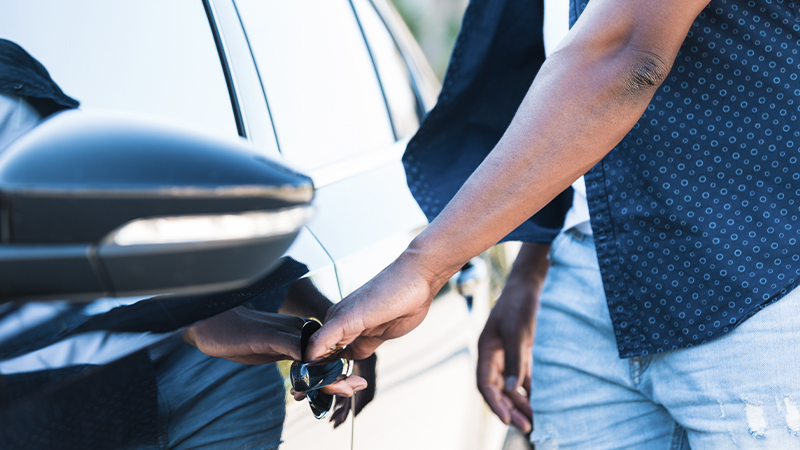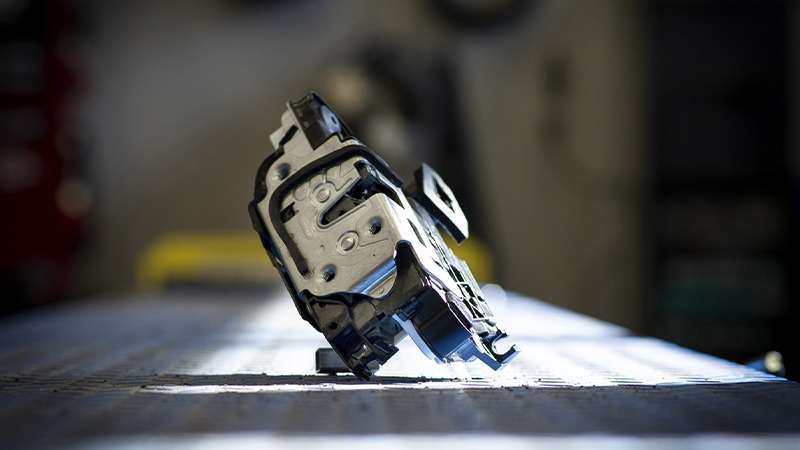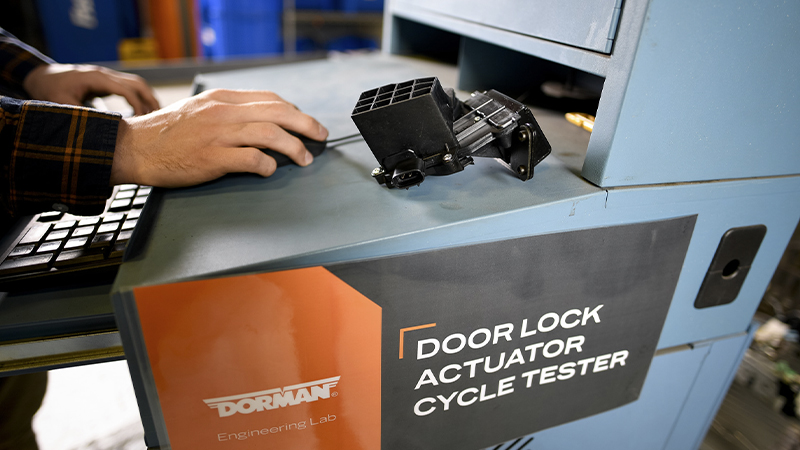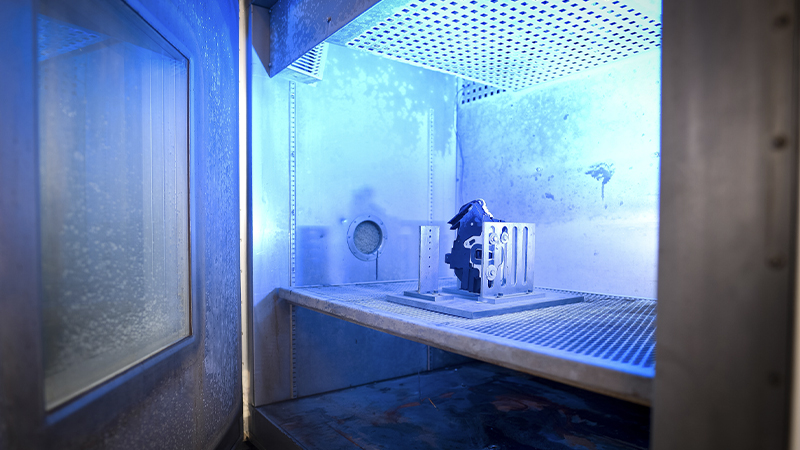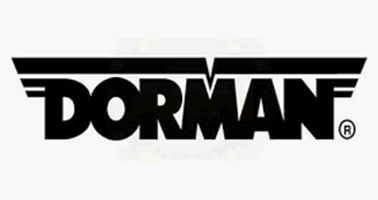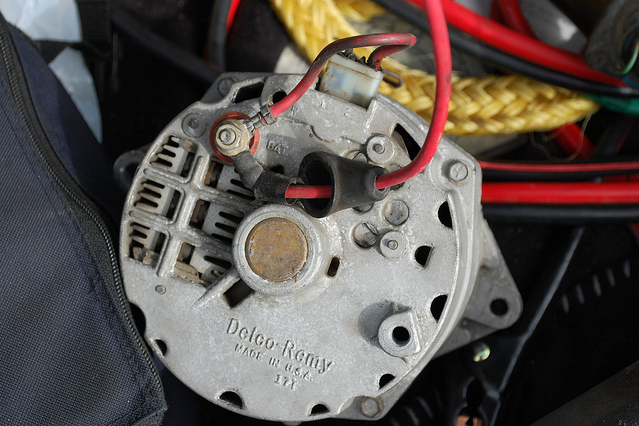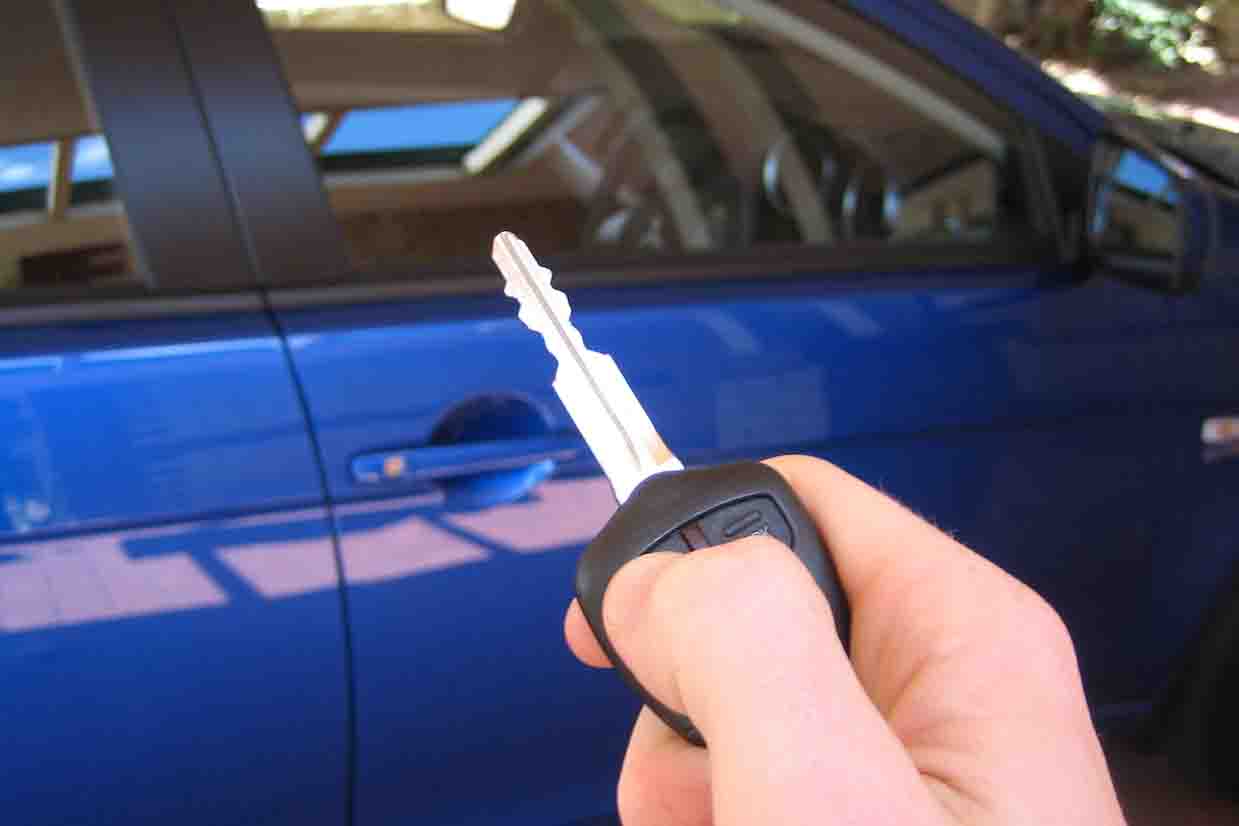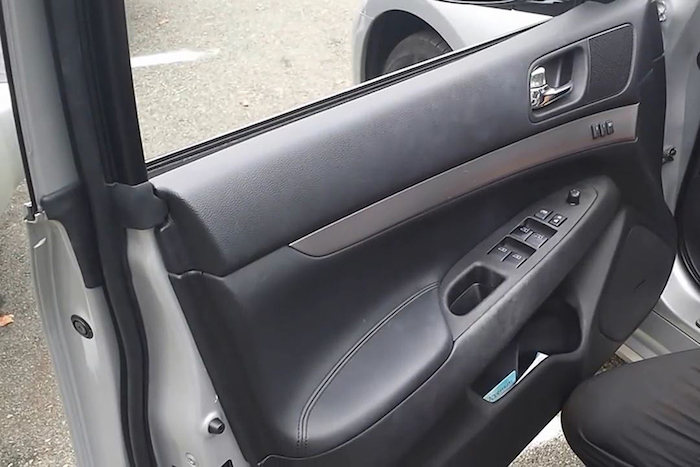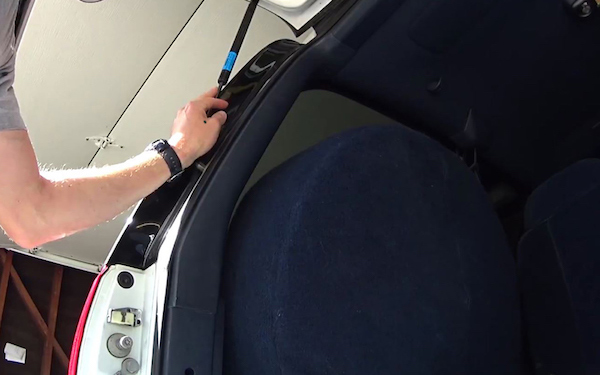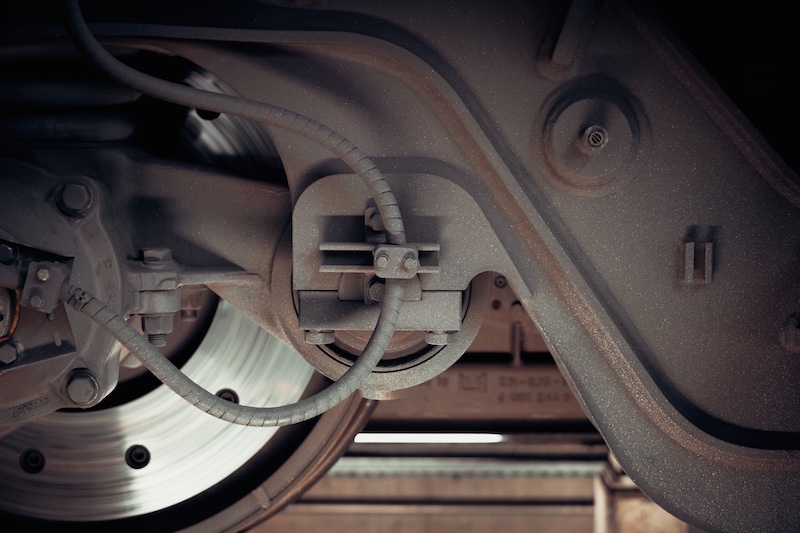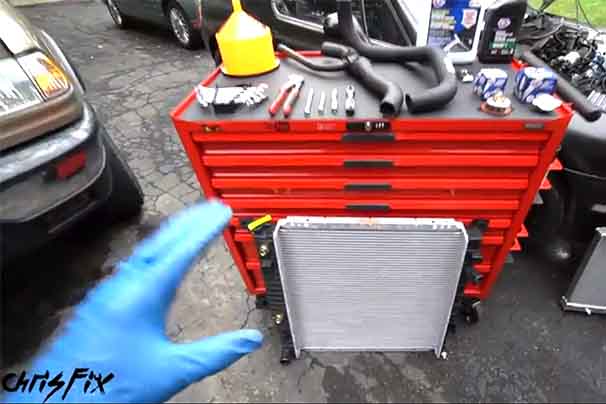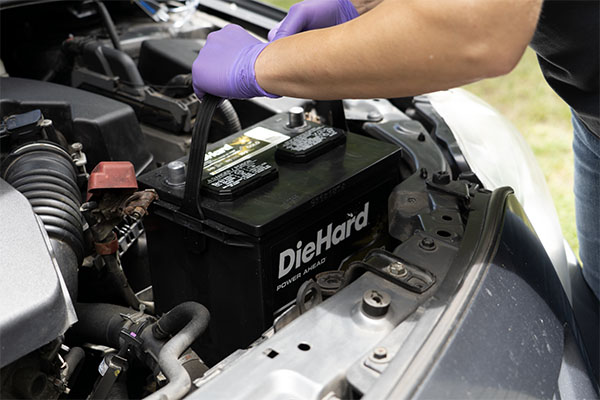People of a certain age and fans of classic cars and trucks fondly recall the unmistakable exhaust burble of a naturally-aspirated V8 and cool breezes from vent windows.
You know what we don't miss? Manual door locks.
It's been decades since we unlocked our driver's door with a metal key, climbed in, and reached over to unlock the rest of the doors. Like sweaty red velour upholstery, fading drum brakes, and clarity-challenged eight-track players, manual door locks passed into automotive history without fanfare, their keys replaced by the keyless entry remotes we take for granted and lose just as readily.
Like all evolutionary technology, however, there's a downside to the digital wizardry that allows that pocket-size plastic fob to operate your door locks. Electric and electronic door lock mechanisms eventually fail and when they do, the lengthy disassembly, repair, and reassembly process is enough to make you wish for the old days.
It's a perfect example of great convenience made possible by great complexity. Manual door locks used steel rods and cables activated by a simple yank or push on a mushroom-shaped button. Modern door lock actuators (DLAs) and integrated door lock actuators (IDLAs) feature electromechanical assemblies with components that can and do fail for all the same reasons that your grandmother's washing machine lasted twenty years while yours lasted roughly about the same amount of time as a Netflix series: Plastic parts and microchips just wear out faster. So when a DLA fails, it's important to choose a replacement wisely.
Most often, the symptoms of a failing door lock actuator are obvious. Here are four of the most common:
- Clicking, grinding or other strange noise during operation
- Intermittent or slow response
- Erratic locking and unlocking
- Power door lock does not function but the door can still be unlocked manually with a key (in vehicles equipped with keyed locks).
Keep in mind, each door has its own actuator, so a faulty actuator only affects one lock.
Quality equals safety
With each passing model year, IDLAs are becoming more popular than DLAs. It's easy to understand why. DLAs are basically updated, electrified versions of manual door lock systems, and use a comparatively simple electric actuator connected to the door lock to trigger locking and unlocking functions. IDLAs integrate those functions into the door latch assembly instead of the door lock, making their installation faster and easier when a vehicle is being birthed on the assembly line. But after about eight years of operation when those IDLAs start to fail and need to be replaced? Not so much.
If you're reading this, chances are you're planning to replace a door lock actuator, and if the vehicle being repaired was built in the last decade, give or take, you'll be installing an IDLA. Here's an indisputable fact you need to know before you charge ahead into that job:
When it comes to door lock actuators, quality equals safety.
We don't mean “quality" in that rarely explained but often-overused sense that marketers glibly apply to everything from shampoo with unpronounceable names to artisanal bread (whatever that is). We mean quality that's defined by legit mechanical and electrical engineering and design experts, monitored during world-class manufacturing methods, and above all, measured by its compliance with government safety standards.
To put it bluntly, buying overpriced shampoo and bread can't hurt anything but your reputation. Buying a cheap door lock actuator can actually hurt you and anyone else in that vehicle if it's involved in a serious collision. Door locks that don't lock and unlock when they're supposed to can be much more than an inconvenience when you're loading groceries. In an accident, you also want to make sure your actuator can withstand the forces necessary to keep your doors closed, and passengers safely inside the vehicle.
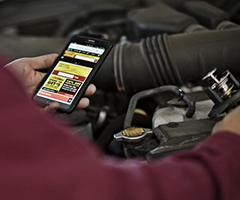
When you shop online with Advance Auto Parts, remember to add your vehicle information to find the right part.
4 Door Lock Actuator Must-Haves
There are plenty of ways to save a buck on car repairs. Choosing a replacement door lock actuator isn't one of them. High-quality, reliable DLAs and IDLAs that are carefully engineered, rigorously tested, and compliant with Federal Motor Vehicle Safety Standards (FMVSS) are readily available. So when you're shopping, insist on these four features.
1. Federal Motor Vehicle Safety Standards Compliance
This is a “Do Not Pass Go, Do Not Collect $200" requirement. Any door lock actuator you're considering should be in compliance with FMVSS 206, the purpose of which is to minimize the likelihood of occupants being thrown from a vehicle as a result of an impact.
Unfortunately, there are many cheap knock-off aftermarket IDLAs and many don't comply with FMVSS 206. It's also worth noting that, unlike a failed DLA, a failed IDLA can render a vehicle door inoperable. Saving a few bucks is obviously not worth that risk.
2. Rigorously Tested
The major players in aftermarket DLAs and IDLAs have a ton of money invested in design engineering and research and development, and before any new design sees the light of day in the marketplace, it's thoroughly tested.
A quality-built DLA or IDLA should last many years, and the only way to unequivocally determine that projected service life is by cycle testing. Picture a machine whose sole purpose in life is to lock and unlock a door thousands upon thousands of cycles to simulate real-world use and abuse. That custom-built testing apparatus looks about as weird as you're imagining it would — sort of like the exposed guts of a car door that's escaped from its host vehicle but can't stop locking… and unlocking… and locking… and unlocking. You get the picture.
That grueling cycle test, along with other tests like material tensile testing, salt spray testing, and temperature testing are all needed to properly test and support claimed reliability. If the actuator you're considering hasn't been tested like this, look elsewhere.
3. Quality Materials
Garbage in, garbage out. That's no truer than for the components that make up a complex assembly, which is exactly what actuators are. Lots of DLAs and IDLAs in the aftermarket look alike, but putting safety first starts with using more durable materials. Look for upgraded plastics, especially in high-wear components, and corrosion-resistant electronics and connectors.
Replacing an actuator is challenging enough; do you really want to risk having to replace it again because the manufacturer cut corners on critical wear components? We don't think so.
4. A Real Warranty
This must-have is as simple as a box of rocks: Any aftermarket manufacturer that's gone to the trouble and expense of crushing it on items 1-3 above is also going to be proud to offer a solid warranty. “Solid" means a limited lifetime warranty covering defects in material or workmanship under normal use and service.
Odds are you won't need to use that warranty – which is the very reason you chose that brand in the first place, right?
Ready to replace your door lock actuator? Read our how-to for step-by-step help, and drop your questions in the comments below.
